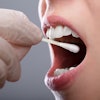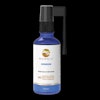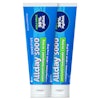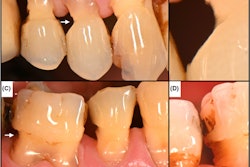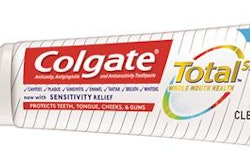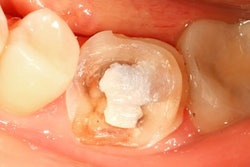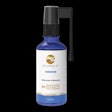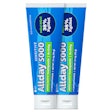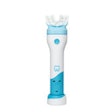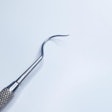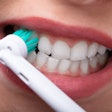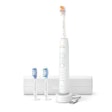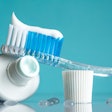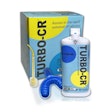
Do your patients ask which toothpaste is best for them? That's a difficult question to answer as toothpastes have complex compositions and different levels of effectiveness against erosive tooth wear. A new study put nine different toothpastes to the test to see if any were able to protect against enamel surface loss.
Researchers compared the ability of nine different desensitizing or antierosive toothpastes to protect against enamel erosion and abrasion, and they analyzed how their chemical and physical composition influenced erosive tooth wear.
"All toothpastes caused different degrees of [enamel surface loss], and none were able to protect enamel from erosion and abrasion," the authors wrote.
The study was published in Scientific Reports (December 20, 2017). The research was led by Samira Helena João-Souza, DDS, of the department of preventive, restorative and pediatric dentistry at the University of Bern in Switzerland.
Enamel protection
While toothpastes have different active ingredients and amounts of abrasives, few studies have focused on erosive tooth wear and the chemical and physical factors of these toothpastes. The researchers of the new study investigated the effects of toothpastes that are sold in Europe and are classified as desensitizing or antierosive on their initial ability to protect enamel from erosion and abrasion.
Going into the study, the researchers thought that none of the toothpastes would be able to entirely protect tooth enamel from erosion and abrasion, measured as surface loss.
The researchers prepared 150 enamel specimens from sound human premolar surfaces. These specimens were randomly distributed into groups according to the toothpastes tested. As controls, artificial saliva and a regular fluoridated toothpaste (Colgate Caries Protection, Colgate) were used.
The team test eight toothpastes, four that were considered desensitizing and four antierosive.
Desensitizing toothpastes:
- Sensodyne Repair and Protect (GlaxoSmithKline)
- Elmex Sensitive Professional (Gebro Pharma)
- Sensodyne Rapid Relief (GlaxoSmithKline)
- Oral-B Blend-a-Med Pro Expert (Procter & Gamble)
Antierosive toothpastes:
- Sensodyne Pronamel (GlaxoSmithKline)
- Elmex Erosion Protection (Gebro Pharma)
- Candida Protect Professional (Migros)
- Regenerate (Regenerate Enamel Science)
The researchers first put the specimens through five days of erosion-abrasion cycling. Then, they mounted each specimen in a container of an automatic brushing machine, which received freshly made toothpaste slurry or artificial saliva, depending on which group it was assigned. The specimens were immersed in the slurry or artificial saliva for two minutes, and during this time, they were brushed for 25 seconds (50 toothbrush strokes). The researchers then rinsed and dried the specimens for analysis.
All the toothpastes showed progressive surface loss throughout the experiment, the researchers reported. The results of mean surface loss for the eight toothpastes and the controls are shown below, with the lower values indicating less loss.
| Surface loss of toothpastes and controls | |
| Controls | Mean surface loss |
| Artificial saliva | 1.78 |
| Colgate Caries Protection | 2.24 |
| Toothpastes | |
| Sensodyne Repair and Protect | 1.70 |
| Elmex Erosion Protection | 2.21 |
| Sensodyne Pronamel | 2.24 |
| Elmex Sensitive Professional | 2.30 |
| Sensodyne Rapid Relief | 2.64 |
| Candida Protect Professional | 3.01 |
| Regenerate | 3.60 |
| Oral-B Blend-a-Med Pro Expert | 3.99 |
Among the desensitizing toothpastes, Sensodyne Repair and Protect showed the lowest mean surface loss value (1.70), but it was similar to the artificial saliva control group (p > 0.05). The Oral-B Blend-a-Med Pro Expert had the highest mean surface loss value (3.99). For the antierosive toothpastes, Sensodyne Pronamel (2.24) and Elmex Erosion Protection (2.21) had the lowest mean surface loss values, while Regenerate showed the highest (3.60).
The authors noted that none of the toothpastes were able to protect from erosion and abrasion, as they predicted.
Independent of claims
The researchers noted some specific limitations to their study:
- They did not evaluate the relative enamel abrasivity and relative dentin abrasivity of the toothpastes.
- They analyzed the chemical and physical factors of the toothpaste slurries in an in vitro model.
However, they concluded that whether a toothpaste was advertised as antierosive or desensitizing had no effect on its ability to prevent surface loss.
"We observed that all desensitizing and/or antierosive toothpastes presented different degrees of surface loss," the authors wrote. "The results of this experiment indicate that enamel surface loss occurs independent of whether the toothpastes have a desensitizing or antierosive claim."
